 |
Feeling lucky?
Want to
search
any of my partnershops yourself
for more, better results?
(commissions earned) |
The links below
will take you
just there!!!
|
|
 |
Dick Miller is one of the actors who make trash cinema so special: He
is hardly leading man material (and only played one lead in his career,
that of timid artist turned psycho killer in A
Bucket of Blood [1959, Roger Corman]), he is rather short, a bit
stocky and only moderately handsome, but as a supporting actor his
presence graced numerous genre classics (and not so classics), and however
small his role was (and they were often very small), he always gave a
solid and memorable performance, at some instance a performance more
memorable than the film itself. Plus, though Miller usually
transmitted all the trustworthyness of a sleazy used car salesman on screen, he at
the same time always managed to come across as completely likeable,
someone you would care about despite his shortcomings.
Early Llife, Early Career
Dick Miller's early life makes him appear the perfect
tough guy: He was born in the Bronx, New York in 1928 and lived through
the Great Depression. Despite still being underage he signed up for
Navy service in World War II in 1945, lying about his age, and was quickly accepted thanks to
his then muscular built. The war was fought and won
though before Miller could do much fighting, but he distinguished himself
in the Navy as a middleweight boxer. After his Navy career, he attended
the City College of New York and the Columbia University, supporting
himself playing semi-pro football and working as a radio DJ.
To finally break away from the tough guy cliché though,
Miller also took jobs in the medical field and he started to perform on
Broadway.
In 1950, he had his first small breakthrough, when he
along with Bobby Sherwood co-hosted the TV-show Midnight Snack,
nowadays regarded as possibly the first late night television
talkshow. More stagework followed, and slowly but steadily, Miller was
building himself a reputation as an actor. When he moved to California
though in circa the mid 1950's, Miller was looking for work as a writer.
Dick Miller and Roger Corman:
The 1950's
Once in California, Dick Miller quickly became friends with Jonathan
Haze, an actor who had just been in a few films by now legendary Roger
Corman [Roger Corman bio -
click here]. Corman was back then pretty much a newcomer to movie-producing and
directing himself, being involved exclusively in making low budget
drive-in schlock, but he had produced Haze's screen debut - Monster
from the Ocean Floor (Wyott Ordung, 1954) - and Haze was in his first
film as a director, Five
Guns West (both 1955), and all subsequent ones so far, even if his
roles were usually rather small. Corman must have spotted Dick Miller's
potential almost immediately, because he made him a member of his stock
ensemble almost on the spot. Roles in Miller's early Corman
films were rather small though, in his debut Apache Woman (1955,
Roger Corman) he played a hat-wearing Indian called Tall Tree (a
bit of an ironic name since Miller is rather short), and he also had an
extra role as part of a posse of white men (this might sound a tad bizarre
from today's point of view, but in the 1950's, in cheap films like
Corman's it was rather usual to use the bit players and extras in more
roles than one).
In his next few Roger Corman films, Dick
Miller's roles were hardly any bigger, there were the Westerns The
Oklahoma Woman and Gunslingers and the science fiction film It
Conquered the World, all from 1956. A turning point came in 1957,
when he was cast as a vacuum cleaner salesman in Roger Corman's Not of
this Earth. True, his role was not much more essential for the film's
plot than his earlier bit parts, but in this one he could probably for the
first time demonstrate his almost uncanny ability to make an even
pointless scene his own and make a lasting impression.
As a result, in
his subsequent Roger Corman films, Dick Miller's roles grew gradually
bigger, and with a few exceptions he was constantly climbing up in the
credits: There were Naked Paradise, Carnival Rock, The
Undead, Rock All Night and Sorority Girl from 1957
and War of the Satellites from 1958, all directed by Roger Corman,
and all basically typical Roger Corman fare, sensationalistic and a tad
trashy, generally underbudgeted little films that were effectively directed
though and quite entertaining in their way.
This all almost
inevitably led to Dick Miller's first lead in a film, Roger Corman's A
Bucket of Blood (1959), a horror comedy that also poked fun at the
beatnik artist scene, with Miller playing a wannabe sculptor whose
masterpieces are actually corpses covered in clay. A comedy was of course
the perfect vehicle for Miller, since he not only had a natural talent for
it, also his looks do not exactly suggest a serious movie villain (and
bear in mind, in A Bucket
of Blood, as likeable as he might be, he's the villain) nor do
they suggest the heroic or romantic lead. In all, A
Bucket of Blood might be no bona fide masterpiece, but it's a
cheap but extremely enjoyable little horror comedy that over the years has
gathered quite a cult following, plus in many of his later films, Dick
Miller would be called Walter Paisley, a hommage to his role name in A
Bucket of Blood - yet the film did not lead to more lead roles
for Dick Miller, for the reasons mentioned above. However Miller did often
wonders with the roles he was given to play ...
Dependable Character Actor: The 1960's and early 70's
The 1960's pretty much started just like the 1950's ended,
almost literally, with a horror comedy for Roger Corman, Little
Shop of Horrors (1960) - which in fact was shot back to back with A
Bucket of Blood and, according to legend, in no more than 2
days. Miller however did not play the lead in Little
Shop of Horrors, this role was reserved for Jonathan Haze, who
plays a klutzy flowershop assistant who by chance discovers a rare plant
which makes him rich and famous, but unfortunately it tends to eat humans
- and to not lose the fame he has gained and the adoration of shop
assistant Jackie Joseph, he starts killing people to feed his plant - not
at all unlike Miller's character in A
Bucket of Blood actually. What makes Little
Shop of Horrors so special though and so endearing to its many
fans is not only its main storyline but also its many scene-stealing
appearances by Corman regulars, like Jack Nicholson as the masochist
dental patient - or Dick Miller as a plant eating flowershop patron.
Even though Dick Miller's roles
didn't get bigger in the Roger Corman films after these two comedies, the
actor continued his association with the director throughout the 1960's
(and pretty much throughout Corman's career as a director), appearing in
Corman's sword and sandal epic Atlas (1961), his Edgar
Allan Poe adaptation The
Premature Burial (1962) - incidently his only one that did not
star Vincent Price -, the multi-director shocker The
Terror (1963, Roger Corman, Francis Ford Coppola, Monte Hellman,
Jack Hill, Jack Nicholson), the sci-fi classic X: The Man with the
X-Ray Eyes (1963) starring Ray Milland, the biker-flick The Wild Angels
(1966) starring Peter Fonda and Nancy Sinatra, the gangster film The
St. Valentine's Day Massacre
(1967) - this one starring Jason Robards as Al Capone -, and the Jack
Nicholson-scripted LSD-film The
Trip (1967), once again starring Peter Fonda.
In the 1960's, with Capture that Capsule/Spy Squad (1961,
William Zens), Dick Miller also started to work for other directors but
Roger Corman on feature films (he had done so on television since the late
1950's, but more about that later). In Capture that Capsule, a
pretty much forgotten low budget espionage flick, his role is actually
relatively big, but soon enough, just like in the Corman-films, he would
usually be only cast in small roles, and even most of his films weren't
that big.
Sure, there was the classic warfilm The Dirty Dozen
(1967, Robert Aldrich), but for this film he didn't even receive an
onscreen billing, and it is more than outweighed by a bunch of beach party
and ski party movies for various studios, like The Girls on the Beach
(1965, William Witney), Ski Party (1965, Alan Rafkin), Beach
Ball (1965, Lennie Weinrib) and Wild Wild Winter (1966, Lennie
Weinrib), all harmless teen films with extremely thin plots and musical
interludes. Other films from the 1960's include the Western A Time
for Killing (1967, Phil Karlson) starring Inger Stevens and Glenn
Ford, but also featuring a young Harrison Ford, the car race feature The
Wild Racers (1968, Daniel Haller) starring Fabian and Mimsy Farmer,
and another (uncredited) role in a Robert Aldrich film, The Legend of
Lylah Clare (1968), this one starring Peter Finch, Kim Novak and
Ernest Borgnine.
The early 1970's brought only little news to
Dick Miller's career. On one hand, he finally got the chance to write a
handful of screenplays (more below), on the other hand actingwise, it was
just like before, small roles in mostly small films. These included
several flicks by Roger Corman's newly found company New
World, like the sex flicks Night Call Nurses (1972,
Jonathan Kaplan), The Young Nurses (1973, Clint Kimbrough) and Candy
Stripe Nurses (1974, Alan Holleb) - all three films quite
obvious cash-ins on New
World's earlier success The
Student Nurses (1970, Stephanie Rothman) -, the
Filipino-coproduced stewardesses vs martial artists-flick Fly Me
(1973, Cirio H.Santiago), and more erotica in the form of The Student
Teachers (1973, Jonathan Kaplan) and Summer School Teachers
(1974, Barbra Peters). Of course, all these films were stupid (if at
times totally loveable for trash movie lovers), and they seemed to spell
out that Miller's career was going nowhere in big letters - yet Miller
marched on and never gave a less than solid performance. And eventually, a
few more interesting roles in a few more interesting films came along the
way, away from New
World, which at the time was strictly small time.
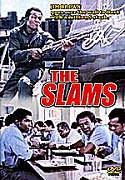
 Flix.com Flix.com
|
| |
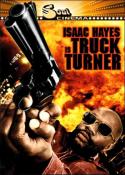
 Flix.com Flix.com
|
| |
The
Slams (1973) starring Jim Brown and Truck Turner (1974)
starring Isaac Hayes are both blaxploitation flicks directed by Jonathan
Kaplan, who knew Miller from his days with New
World, who would go on to bigger (if not necessarily better)
things, and who would cast Miller again and again over the years. Then
there's Executive Action (1973, David Miller), a film about the
JFK-assassination starring Burt Lancaster and scripted by Dalton Trumbo, Capone
(1975, Steve Carver), a gangsterfilm about, you guessed it, Al Capone,
with Ben Gazzara in the title role and a young Sylvester Stallone, and the
truck-driving film White Line Fever (1975, Jonathan Kaplan)
starring Jan-Michael Vincent.
Even back at New
World, Miller's films and roles had improved a bit, with movies
like the gangster films Big Bad Mama (1974, Steve Carver)
starring Angie Dickinson, William Shatner and Tom Skerritt and Crazy
Mama (1975, Jonathan Demme) starring Cloris Leachman and Stuart
Whitman - both of course cash-ins on Corman's own very successful Bloody
Mama from 1970 starring Shelley Winters plus a young Robert de Niro -,
and then there was Darktown Strutters/Get Down and Boogie
(1975, William Witney), basically a totally over the top blaxploitation
musical. In the mid-1970's though, Dick Miller's past caught up
with him, and in his case, this wasn't such a bad thing, as his luck began
to change for the better ... but more about that later.
Dick Miller, Writer As
I mentioned above, Dick Miller originally went to Hollywood to become a
writer. However, it did take him over 15 years to really write something
for the screen. Miller's writing efforts however are of only moderate
interest at best: His first endeavour was to co-write the screen story
(with scripters Dee Caruso and Gerald Gardner) for Which Way to the
Front (1970), one of the later Jerry Lewis films in which the comedian
directs himself. Unfortunately, writing Jerry Lewis comedies is a
completely thankless job, actually Lewis needs his films' plots only as
hangers for his comedy, and by the 1970's his comedy (which was never all
that great in the first place) has grown increasingly stale - which is not
at all helped by the fact that as a director, he couldn't help but make
himself the center of attention all the time, neglecting all supporting
characters and subplots. Not that it really matters, but a few
words about the plot: It's 1943, World War II is still going strong, and
the richest man in the world, Jerry Lewis, wants to join the troops, but
is rejected a 4F. So he decides to build his own army, and eventually he
goes over to Europe, impersonates a Nazi officer and tries to kill Hitler.
Now one can only fathom what this movie would have been with a decent
comedian in the lead and a more levelled direction, but as it is, the film
is hardly worth your or anybody else's time and money ...
One
year later, Dick Miller wrote the story for Four Rode Out/Cuatro
Cabalgaron (1971, John Peyser), a Spanish/US-American co-production
starring Pernell Roberts of Bonanza-fame,
Sue Lyon of Lolita-fame, Julián Mateos and Leslie Nielsen, which
is basically your standard if slow-moving Western, shot in Spain, to be
more in tune with the then current spaghetti Westerns (which were also
shot mainly in Spain), presumably. It was in 1975 though that
Dick Miller made his ultimate contribution (as a writer) to the trash film
pantheon, T.N.T. Jackson (Cirio H.Santiago), a blaxploitation flick
(a genre that has by 1975 passed its prime but was still pretty popular) he co-wrote with Ken Metcalfe, that New
World decided to shoot in the Philippines and that features
Jeannie Bell as a martial arts-wise sister in a very revealing role. Now T.N.T.
Jackson
for sure is not the best blaxploitation film ever, it's actually
pretty silly and exploitative - but as long as you can see the film's
funny side (whether it was intended or not) you will be greatly
entertained.
Rediscovery of Someone
Who Wasn't Even Lost: From the Mid-1970's to the 1990's
It's the mid-1970's now, Dick Miller has been in feature films for a
good 20 years without his career ever getting a real boost, mainly because
Hollywood bigwigs consider him a B-movie actor with AIP
and New
World and therefore not good enough for their A-movies. However,
since Miller's humble beginnings in the 1950's a new crop of directors has
taken over, and they remember Miller from their childhood and their teens
when they saw him on screen and - not yet able to distinguish between A-
and B-pictures (which sounds like a good idea anyways) - only remember him
as a familiar face that popped up time and again in their favourite films.
The
first of this new crop of directors was probably Jonathan Kaplan, who has
regularly cast Miller from the early 1970's (and Night Call Nurses)
onwards, but the actual film that spells out Miller's rediscovery best is
probably Hollywood Boulevard, a film by Allan Arkush and Joe Dante from
1976. In itself, Hollywood Boulevard
is a loving but flawed hommage to 1970's grindhouse moviemaking
(ironically made by one of the main providers of grindhouse movies at the
time, New
World) about a naive girl (Candice Rialson) coming to Hollywood
trying to make it big as a moviestar but starting out in cheapskate
formula flicks. Now Rialson in the lead is rather terrible, as is Jeffrey
Kramer as her love interest, but what keeps this film afloat are its many
injokes and colourful supporting performances by Paul Bartel, Mary Woronov
and above all others Dick Miller, playing Ms Rialson's sleazy yet
compassionate manager who in the end tries to get Robby
the Robot to star in a remake of Gone with the Wind
(1939, Victor Fleming). Now casting Dick Miller has not been a
coincidence, nor has he just been cast because he was on the New
World-payroll, Miller is actually a part of the hommage-aspect of
the film, which is also why he is called Walter Paisley in this one, just
like in his breakthrough film A
Bucket of Blood. Quite obviously, Joe Dante (whose
directorial debut this was) was very pleased with Dick Miller as an
actor,as he has cast him in each and every of his feature films (not all
of his TV-movies and shows though) since then, and his career has really
skyrocketed from the low budget depths of New
World to multi-million Dollar special effects movies for
Hollywood's big production houses - which is of course not only a good
thing, since despite all the money he has at hands, Dante is basically
still making formula movies, and probably he now has less freedom than on the
set of a New
World-flick ...
Hollywood Boulevard
was followed by Piranha
in 1978 - in which Miller gave a great performance as a thick-headed and
corrupt mayor -, Rock'n'Roll High School (1979) - a musical comedy
featuring the Ramones actually credited to Hollywood Boulevard
co-director Allan Arkush, but Dante stepped in to direct a few scenes
after Arkush was hospitalized for exhaustion -, the somewhat overrated
werewolf flick The Howling
(1981) - in this one Miller plays the owner of an occult library -, Twilight
Zone: The Movie (1983, segments directed by John Landis, Steven
Spielberg, Dante and George Miller) - here Miller plays alongside genre
veterans Kevin McCarthy and William Schallert in a remake of an episode of
the series Twilight
Zone from 1961, It's a Good Life -, Gremlins (1984) -
possibly Dante's most successful and most famous film up to date -, of
course the sequel Gremlins 2: The New Batch (1990), the kiddie
sci-fi movie Explorers (1985) - starring a very young River Phoenix
and a very young Ethan Hawke -, Innerspace (1987) - Dante's botched
up hommage to Fantastic Voyage (1966, Richard Fleischer), starring
the incredibly unfunny Martin Short next to Dennis Quaid, Meg Ryan, Kevin
McCarthy and William Schallert -, the episodic comedy Amazon Women on
the Moon (1987, co-directed by John Landis, Joe Dante, Carl Gottlieb,
Peter Horton, Robert K.Weiss), The 'Burbs (1989) - a black comedy
about life in the suburbs and distrust against all new influences starring
Tom Hanks, Bruce Dern and Carrie Fisher which is only ruined by a
cheesy ending that seems to contradict the whole rest of the movie -, Matinee
(1993) - a loving if cheesy hommage to science fiction double features and
kiddie matinees fromt he 1950's starring John Goodman as a filmmaker based on both
William Castle and Bert I.Gordon with Dick Miller playing a phony legion
of decency crusader -, Small Soldiers (1998) - a film about toys come to
life -, and Looney Tunes: Back in Action (2003) - a film about the
popular Looney Tunes characters coming to life (again).
Apart from those, Dick Miller also acted in several (but not
all) of Dante's TV-projects, like The Second Civil War (1997), The
Warlord: Battle for the Galaxy (1998), one of Dante's episodes for Police
Squad, Testimony of Evil (Dead Men Don't Laugh) (1982) and
one of his episodes for Amazing Stories, The Greibble
(1985). Hollywood Boulevard
co-director Allan Arkush also used Dick Miller time and again, in
above-mentioned Rock'n'Roll High School (1979), in Heartbeeps (1981, Allan Arkush), a rather ill-conceived
sci-fi comedy about lovesick robots, the musical comedy Get Crazy
(1983, Allan Arkush) starring Malcolm McDowell as a punkrocker, Shake
Rattle and Rock! (1994) starring a young Renée Zellweger, as well as
several episodes of the TV-series Fame (1985 - 1986).
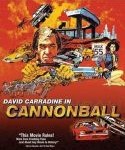
 Flix.com Flix.com
|
| |
However, Joe Dante and Allan Arkush were not the only ones who
rediscovered Dick Miller, quickly others followed suit, like Paul Bartel,
who cast Miller in his carchase movie Cannonball!
(1976), an inferior cash-in to his own Death Race 2000
(1975). Martin Scorsese, by then already a respected director (who did not
refrain from doing a cameo in Cannonball!
though) cast Miller twice, in New York, New York (1977), a musical
starring Robert De Niro and Liza Minelli, and in After Hours (1985)
a comedy starring Griffin Dunne, Rosanna Arquette, Cheech & Chong, and
Linda Fiorentino - too bad these two are not among Scorsese's better
films.
Then there's of course Steven Spielberg who used Dick Miller in his
ill-adviced comedy 1941 (1979), Sam Fuller, who cast Miller as an
animal trainer in his movie about a racist dog, White Dog (1982) starring
Kristy McNichol, and James Cameron, who had Miller, playing a pawnshop
clerk, shot by Arnold Schwarzenegger in The
Terminator (1984).
Apart from all those, one of course also must not forget Jonathan
Kaplan, whose career slowly but steadily gained momentum and who had the
habit of casting Dick Miller every now and again, including the
ill-adviced Terence Hill-starrer Mr.Billion (1977), the TV-thriller
11th Victim (1979) - on which Miller's old pal and former
Corman-actor Jonathan Haze worked as associate producer -, the drag-racing
drama Heart Like A Wheel (1983) starring Bonnie Bedelia and Beau
Bridges, the rather silly simian science fiction Project X (1987)
starring Matthew Broderick and Helen Hunt, and the quite effective if not
terribly original thriller Unlawful Entry (1992) starring Kurt
Russell, Ray Liotta and Madeline Stowe.
On the other end of the cinematic spectrum, Dick Miller was also the
subject of rediscovery by Fred Olen Ray. Now it's true that Fred Olen Ray
matches neither of above-mentioned directors in respectability (though in
talent I'm not that sure, and there are a few of his films I prefer over Steven Spielberg or Jonathan Kaplan
film any day), but he has done much more
for seasoned actors fallen from grace with the Hollywood bigwigs than any
of the above directors, e.g. for Buster Crabbe (Alien Dead,
1980) [Buster Crabbe bio -
click here], John Carradine (Prison Ship, 1988 and Bikini
Drive-In, 1995) [John
Carradine bio - click here] or Ross Hagen, to name but a few.
| 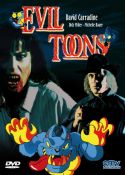
 Flix.com Flix.com
|
|
Miller
made 3 films with Fred Olen Ray, the actioner Armed
Response (1986) starring David Carradine, Lee Van Cleef, Mako, Ross Hagen and Michael Berryman
plus Laurene Landon, the sexy Mafia-comedy Mob Boss
(1990) starring William Hickey, Morgan Fairchild and Stuart Whitman, and
the wacky partly animated horror comedy Evil Toons (1992) starring
once again David Carradine, Monique Gabrielle, plus the film has Michelle
Bauer as Miller's wife in a small but breast-revealing role. Of these
films, perhaps Armed
Response demonstrates Miller's talents best: He only has a small
role as a small-fry crook at the side of Laurene Landon, and his
performance lasts less than 10 minutes, but despite a quite stellar cast
(at least by Fred Olen Ray's standards), Miller is the only one to make
his role memorable by giving his crook character a certrain quirky quality
that is simply unique to him (and makes him such a great character actor).
Besides Miller's performances in films of name directors (and
in his way, even Fred Olen Ray is a name director), Miller also gave
performances in a few films by lesser known directors that can be called
self- or genre-referential, films like Dr. Heckyl and Mr. Hyde (1980,
Charles B.Griffith - writer of both A
Bucket of Blood and Little
Shop of Horrors) - a horror comedy starring Oliver Reed in the
lead role(s) -, the sci-fi flick Space Raiders (1983, Howard
R.Cohen), Jim Wynorski's cheapo robot slasher Chopping Mall (1986)
- this one also stars Barbara Crampton, Paul Bartel, Mary Woronov, Mel
Welles and Angus Scrimm and has Miller once again playing a character
named Walter Paisley -, the alien invasion hommage Night
of the Creeps (1986, Fred Dekker), Dead
Heat (1987, Mark Goldblatt) - a cop/zombie movie with Treat
Williams and Joe Piscopo in the leads plus Vincent Price, Keye Luke and
Darren McGavin -, Amityville 1992: It's about
Time (1992, Tony Randel), Attack of the 5 Ft. 2 Women (1994,
Julie Brown, Richard Wenk) - despite the title a musical parody of both
the (then current) affairs of ice skater Tonya Harding and penis chopper
Lorena Bobbit starring Julie Brown -, and Demon Knight (1995,
Ernest R.Dickerson, Gilbert Adler) - a spin-off of the then popular Tales
from the Crypt TV series. They all profited from the presence of Dick
Miller as an easily recognizable genre figure. Actually, Dick Miller was
also to be in a film by the master of genre referencing, Quentin
Tarantino, Pulp Fiction (1994), but unfortunately, due to the
length of this movie, Miller's scenes landed on the cutting room floor -
which is quite a shame, since Miller, with both his specific physique and
career, seems to be cut out to be in a Quentin Tarantino genre hommage.
Besides
these (and other) genre hommages, Miller would of course also accept
routine supporting roles in regular flicks (and I know how blurry the line
between hommage film and regular flick is), films like The Happy Hooker
Goes to Hollywood (1980, Alan Roberts) - the third of the Happy
Hooker-films, basically erotic (not hardcore) comedies, this time
with Martine Beswick in the lead plus Adam West -, Smokey Bites the Dust
(1981, Charles B Griffith) - a carcrash comedy (then a pupular genre) to
cash in on the success of the Burt Reynolds-vehicle Smokey and the
Bandit (1977, Hal Needham) -, All the Right Moves (1983,
Michael Chapman) - a very weak football drama with a pre-superstar Tom
Cruise in the lead -, the prostitute-turned-avenger sequel Angel III: The
Final Chapter (1988, Tom de Simone), the earthquake thriller Quake
(1993, Louis Morneau) starring Steve Railsback, and the thriller Number
One Fan (1995, Jane Simpson) starring Steve McQueen's son Chad
McQueen, to name but a few. Neither of these films is of course a classic,
but all of these are livened up by Dick Miller's performances - and some
of them do need quite a bit of livening up ...
Dick Miller on Television
Of course, a character actor like Dick Miller is almost indispensable
for TV-series, since his quite natural charisma makes up for any lack of
backstory TV-series often provide their supporting characters
with. Sporadically, Dick Miller has been on television since the late
1950's, in series like the crime series M Squad (1958), Dragnet
(1958) as well as the newer version, Dragnet 1967 (1967), The
Untouchables (1959), McCloud (1972) starring Dennis
Weaver, Police Woman (1974) starring Angie Dickinson (in the
episode Seven-Eleven [Richard Benedict] that also starred Larry
Hagman of later Dallas-fame and Jeannie Bell of later T.N.T.Jackson
fame), Hunter (1977), Moonlighting (1987)
starring Bruce Willis and Cybill Shepherd, NYPD Blue (1999)
and Snoops (1999), the Western series Bonanza
(1963), Wagon Train (1964) and The Virginian
(1964), the World War II-series Combat (1966), and the
sitcoms Soap (1979), Taxi (1979, 1982),Who's the Boss
(1990) starring Tony Danza and a young Alyssa Milano and the movie-spin-off-series
Clueless (1999), and the hospital series General
Hospital (1982) and ER (1999).
However, it was
after what I have labelled as Miller's rediscovery that he finally got the
good roles in series interesting to genre fans, like the mini
series V: The Final Battle (1984, Richard T.Heffron), Tales
from the Darkside (1985), above-mentioned Amazing Stories
(1986), Star Trek: The Next Generation
(1988) as well as Star
Trek: Deep Space Nine
(1995), the Nightmare
on Elm Street-spin-off Freddy's Nightmares
(1989), Lois
and Clark: The New Adventures of Superman
(1994) and Weird Science (1996). Plus, Miller even had
recurring roles in two series, Fame (1984 - 1987), a spin-off
of the dance movie by the same name, and Flash (1990 -
1991), a short lived series based on the DC-comicbook. Oh,
and by the way, Dick Miller's (so far) only directing credit was also for
television, an episode for the second season of the hit series Miami
Vice called The Fix (1986), starring Don Johnson and Philip
Michael Thomas, but also featuring Michael Richards in a supporting role.
Dick Miller in the 2000's
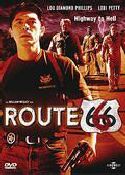
 Flix.com Flix.com
|
| |
In the new millenium, Dick Miller has somewhat slowed down his
output, which shouldn't come as a surprise since he by the turn of the
millenium he was already 71 years old. However, with films like the
shocker Route 666 (2001, William Wesley) starring Lou Diamond
Phillips, Lori Petty plus L.Q.Jones, the cyber-thriller Maximum Surge
Movie (2003, Jason Bourque) and the wonderfully titled Trail of the
Screaming Forehead (2007, Larry Blamire) he proves he is still a force
to be reckoned with - and horror- and trashfilm-lovers all around the
world couldn't be happier, since no matter how bad the movie might be, the
pure presence of Dick Miller alone, doing his usual, slightly sleazy but
immensely likeable routine, is enough to put a smile on every fanboy's face
...
|